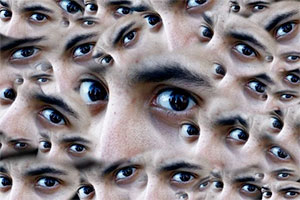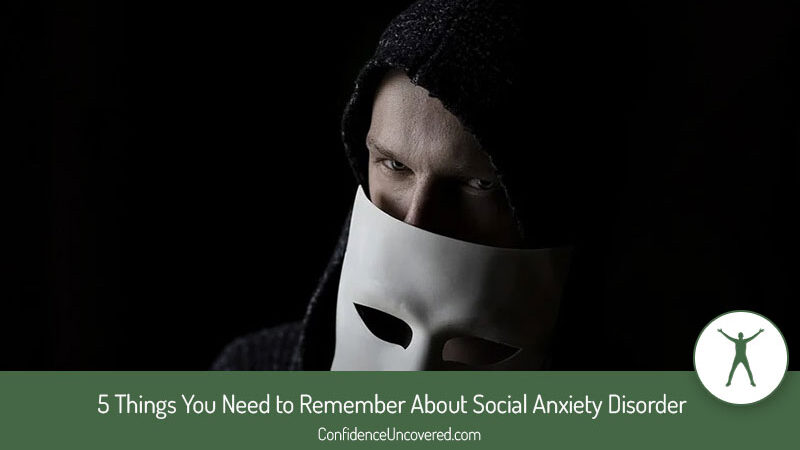Why Am I Having A Panic Attack?

Understanding Panic Attacks
Panic attacks, or ‘times where a situation causes high fear, resulting in uncontrolable anxiety’ are incredibly common. It’s just that not everyone gives them the name ‘panic attack’.
You might find yourself in one of these high fear situations when you need to make a speech in public, when you have to go out in public, or even if you have to use the telephone.
The situation itself can be different for everyone, but the process is the same.
For the purpose of this article, I’m going to use the example of agoraphobia. Mainly because it’s one of the issues that many other fears seem to cause.
How panic attacks begin
The backstory…
So, there you are chatting to friend who innocently asks you.. “Why do you keep yourself locked up in this house all the time? We should go out and have some fun!”
 Your response is always the same… “I can’t, Whenever I try to go out, I have a panic attack, sorry.”
Your response is always the same… “I can’t, Whenever I try to go out, I have a panic attack, sorry.”
You’ve suffered from this problem for years, but never really understood why.
In the majority of cases, your condition probably began in a way that’s similar to the scenario below.
A few years ago, you were out walking when you tripped in the high street. You got up, brushed yourself down and carried on walking. Trying very hard not to look embarrased in front of the dozen people who saw you fall.
The result
Now, panic attacks (sometimes called an anxiety attack) seem to creep up on you from nowhere. One moment you’re fine, going about your daily business without a care in the world. Then suddenly you’re overcome with an overwhelming sense of danger and dread.
Your heart begins to pump furiously, beads of ice-cold sweat run down your back. Your throat dries out almost immediately and you find yourself thinking dreadful thoughts “… am I going to die?”, “… my heart’s beating so fast it feels like it’s going to explode!”, “…I can’t catch my breath, calm down, calm down!… Oh my god, I think I’m going to faint!”
This is usually the time when you ‘imagine’ that everyone is staring at you. Wondering what this ‘crazy’ person is going to do next. At which point you try to escape the situation as quickly as possible, vowing never to let yourself get dragged into that position again.
Once you remove yourself from the situation, the symptoms start to disappear. You feel calmer, more like your old self again.
Your mind starts to get some control back and you start to analyse why it happened. What was it that brought on this sudden bout of fear?
Well, your experience began because your mind viewed your situation as dangerous, or harmful in some way.
What that means in practice
You’ve no doubt heard that Humans have an overwhelming instinct for self-preservation, often called the ‘fight, or flight’ response?
 Whenever you’re in a potentially dangerous situation, your mind makes a decision to either confront it, or run from it. But in both cases the body prepares itself to take action by following the same strategy; it floods the body with adrenalin. This helps to either, give you the strength and power to fight, or give you the speed and stamina to make your escape.
Whenever you’re in a potentially dangerous situation, your mind makes a decision to either confront it, or run from it. But in both cases the body prepares itself to take action by following the same strategy; it floods the body with adrenalin. This helps to either, give you the strength and power to fight, or give you the speed and stamina to make your escape.
The rush of adrenalin increases your heart rate, which increases your blood pressure. Expanding the air passages of your lungs. It enlarges the pupils in your eyes. It distributes blood to the muscles and alters the body’s metabolism, so as to maximise blood glucose levels (primarily for the brain).
This instinct works tremendously well in dangerous situations, or times of high anxiety. But, sometimes the mind can see the most mundane of situations as a reason to panic. This is where the problem occurs…. because you can’t see any imminent danger around you. You don’t know why these symptoms are happening, but you know you have to get away…. NOW!
How your mind creates the link
Because there’s nothing physical to ‘blame’ the attack on, your mind makes the decision for you. It’ll pick something unique to that situation and unconsciously get you ready to escape that ‘dangerous’ situation, if you’re confronted by it again.
Let’s say that at the time of the panic attack, you were taking a short-cut through your local park. The mind anchors that the panic attack was caused, because a few weeks ago you read that a person was attacked in a park 100 miles away. Your mind created the thought that next time it may be you! From now on, you’ll unconsciously stay away from parks.
A couple of weeks later, you park your car in the seafront car park and begin to walk towards the beech. Soon after, another panic attack starts. This time your mind anchors, “…well, maybe it’s not just parks that are dangerous, maybe beeches are as bad, after all, a beech is no safer than a park, is it?”
The result of that link
After you’ve suffered panic attacks, your self-esteem drops. You lose any self-confidence you had previously and you begin to question your sanity. You may ask yourself things like… “what’s wrong with me?” “Why do these things keep happening to me?” “Am I going crazy?” “Do I have a serious illness I’m not aware of?” “Am I having a nervous breakdown?”
The list is endless and everyone is different, but whatever your thoughts, these moments of high anxiety can be the most frightening of your life.
Before you know where you are, you’re staying away from any open spaces, and in some cases any public places, but you’re not really sure why. You visit your Doctor, who tells you you’re suffering from Agoraphobia.
Your conscious mind now has a label for your problem… “I’m Agoraphobic. I have a fear of open spaces”
However in this case, the real reason for your Agoraphobia isn’t a fear of open spaces. It’s a fear of people thinking you’re crazy, a thought you’ve had in the past whenever a panic attack has taken place where strangers are watching you!
Your mind’s very good at attributing causes to symptoms, or problems. It’s unfortunate, but it’s just not very good at picking the correct causes.
So, it’s always worth looking a bit deeper into the issues you experience. Maybe the cause isn’t what you thought it was initially.
So, maybe spend some time opening your view of what’s causing your panic attack/high anxiety. Perhaps the cause isn’t what you thought it was?
To be continued…
During the next part of this series, ‘Why panic causes the mind to jump to conclusions’, we’ll look at why your mind makes these decisions. Why it is, you’re unable to accept that the panic attack happened with no outside influence and then later on we’ll look at strategies to help in these types of situations.
Until next time, let me know in the comments if any of this makes sense to you. Can you see yourself in this example?




